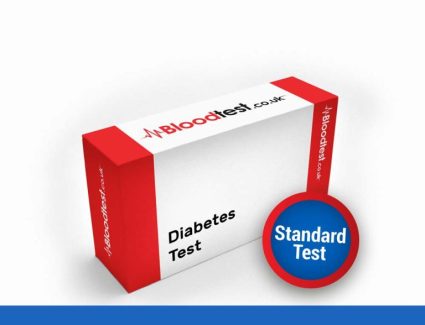Maximizing Your Health Through Regular Diabetes Testing
Diabetes Blood Test in Market Harborough: Committing to regular diabetes testing is not just a best practice; it is a fundamental element in effectively managing health. In the United Kingdom, where diabetes increasingly poses a significant health concern, understanding the importance of routine diabetes blood tests is crucial for both prevention and effective management. By actively monitoring their health, individuals can substantially mitigate the risks associated with diabetes, including cardiovascular disease, neuropathy, and renal complications. Being knowledgeable about one's health status empowers individuals to take decisive actions, thereby enhancing their overall well-being.
Routine testing not only boosts self-management but also enables timely adjustments to medication, dietary habits, and lifestyle changes aimed at achieving and sustaining optimal blood sugar levels. For those living with diabetes—especially in the dynamic community of Market Harborough—consistent testing can be the determining factor between maintaining good health and encountering serious complications. The peace of mind that comes from knowing one’s blood sugar levels are stable cannot be emphasized enough; it instills a sense of control and stability in managing one’s health.
Moreover, the frequency of testing may vary according to personal circumstances. Factors such as age, the duration of one's diabetes, and general health status can all influence how often one should be tested. According to NHS guidelines, it is typically suggested that individuals with diabetes have their blood sugar levels assessed at least once a year. However, those with more complex conditions may need to monitor their levels more frequently. This tailored approach to testing is essential for ensuring optimal health management and facilitating timely interventions when necessary.
The presence of local testing facilities in Market Harborough provides a significant benefit for residents. With quick access to results and the opportunity to consult healthcare professionals immediately, individuals can more effectively manage their diabetes. Local GP surgeries and pharmacies offer convenient testing options, significantly reducing the need for long-distance travel and minimizing waiting times. This accessibility not only enhances the patient experience but also promotes adherence to health management protocols.
The Essential Role of Regular Diabetes Testing in Health Management

The repercussions of unmanaged diabetes can be severe, highlighting the necessity of regular testing. Each test provides critical information regarding blood sugar levels, which can fluctuate due to several factors, including diet, stress, and physical activity. By consistently monitoring these levels, individuals can significantly lower their risk of developing complications such as neuropathy and cardiovascular disease. Therefore, the proactive strategy of regular testing is essential for maintaining health and preventing long-term issues.
Furthermore, routine testing is key to identifying patterns in blood sugar levels. For instance, if a person observes that their blood sugar levels tend to rise after specific meals, they can make informed dietary modifications. Such insights can be transformative, empowering individuals to take an active role in their health. Additionally, for those at risk of developing diabetes, consistent screening can enable early intervention, potentially reversing pre-diabetic conditions before they escalate.
In Market Harborough, local healthcare providers are dedicated to promoting regular testing as an integral aspect of comprehensive diabetes management. Patients should feel encouraged to discuss their testing schedules with their GP or diabetes care team to ensure they receive appropriate monitoring and support. This open communication is vital for adapting treatment plans and maintaining optimal health outcomes.
Establishing the Right Frequency for Diabetes Testing
The frequency with which diabetes blood tests should be conducted largely depends on individual health conditions and healthcare professionals’ recommendations. For most individuals living with diabetes, the NHS generally recommends testing at least once annually. However, those experiencing poorly controlled diabetes or symptoms of hyperglycemia or hypoglycemia may need to undergo testing more frequently to effectively manage their condition.
By closely monitoring blood sugar levels, individuals can recognize trends and make necessary adjustments to their lifestyle and treatment. For example, those using insulin may need to test their levels multiple times daily to maintain stability. The essence of effective diabetes management lies in personalized care—what works for one person may not be suitable for another.
In Market Harborough, the local healthcare framework supports this tailored approach. GPs and diabetes specialists are available to assist in determining the appropriate testing frequency based on individual health needs, ensuring all patients receive the attention and care they require. Convenience plays a significant role; local testing facilities eliminate barriers to regular monitoring, making it easier for individuals to proactively manage their health.
Seeking Valuable Insights Through Diabetes Testing
https://bloodtest.co.uk/wp-content/uploads/Diabetes_Blood_Tests_Guide.mp3
 The Significant Benefits of Local Diabetes Testing Facilities
The Significant Benefits of Local Diabetes Testing Facilities
The convenience provided by local testing facilities in Market Harborough is an incredible asset. Accessible healthcare services alleviate the stress associated with lengthy travel times and waiting for appointments. This ease of access encourages more individuals to engage in regular testing, which is vital for effective diabetes management.
Moreover, local testing fosters stronger relationships between patients and healthcare providers. Regular visits to the same facilities allow individuals to become familiar with the staff and the processes involved, creating a more supportive healthcare environment. This familiarity can reduce anxiety surrounding testing, enabling individuals to feel comfortable discussing their concerns and symptoms with healthcare professionals.
Additionally, rapid access to results is crucial for effective diabetes management. Immediate feedback allows for swift decision-making regarding treatment and lifestyle changes. In cases of unexpected readings, prompt consultations can guide individuals on the appropriate next steps, ensuring they stay within a safe and manageable health range.
Ultimately, the availability of local resources in Market Harborough empowers individuals to take control of their health, making regular testing an effortless part of their routine. The benefits extend beyond individual health; a community that is knowledgeable about diabetes management contributes to an overall healthier population.
Locating Convenient Diabetes Blood Test Facilities in Market Harborough

Identifying a dependable location for a diabetes blood test in Market Harborough is a pivotal step in effectively managing this chronic condition. Thankfully, the town features a variety of healthcare facilities that cater to the needs of individuals seeking testing services. This section highlights some of the most accessible locations for diabetes testing.
Utilizing Local GP Surgeries for Convenient Diabetes Blood Testing
In Market Harborough, numerous local GP surgeries incorporate diabetes blood tests into their routine health checks. These surgeries are not only conveniently situated but also serve as a primary healthcare hub for residents. Undertaking testing through your GP facilitates a holistic approach to health management, as your doctor is familiar with your medical history and can provide tailored advice suited to your specific needs.
Typically, these surgeries offer various testing options, including the HbA1c test, which effectively measures long-term blood sugar levels over time. Many GPs in Market Harborough are actively involved in diabetes management programmes, ensuring that patients receive comprehensive and coordinated care. Regular visits to your GP not only facilitate testing but also promote ongoing monitoring and support for lifestyle changes that can significantly influence diabetes management.
To access these essential services, residents can schedule an appointment with their GP, ensuring they mention their need for a diabetes blood test. This proactive approach can lead to enhanced health outcomes, as regular testing becomes an integral aspect of managing diabetes effectively.
Considering Private Clinics for Quick and Efficient Testing Services
For those seeking expedited service, private clinics in Market Harborough provide confidential and efficient diabetes blood testing services. These clinics typically offer flexible appointment times, often allowing for same-day testing without lengthy waiting periods. Such options are particularly appealing for individuals with demanding schedules or those who require immediate results for peace of mind.
Private clinics generally employ skilled healthcare professionals specializing in diabetes management, ensuring that patients receive high-quality, attentive care. Many clinics also provide additional services, such as dietary advice or lifestyle counselling, making them a comprehensive resource for diabetes care.
While private testing may entail costs, the advantages of prompt service and specialized attention can be worthwhile for many individuals. It’s advisable to research local clinics in advance, considering their reputation, services offered, and associated costs to find the best fit for personal health needs.
Pharmacies as an Accessible Option for Diabetes Testing Services

In addition to GP surgeries and private clinics, several pharmacies in Market Harborough offer diabetes testing services. These pharmacies provide a straightforward and efficient way to get tested, with many offering immediate results on the same day. This accessibility enables more individuals to easily monitor their blood sugar levels without the complications of regular appointments.
Pharmacies create a welcoming atmosphere with trained professionals who guide individuals through the testing process. Many are equipped to conduct basic screening tests, such as blood glucose monitoring, which can serve as an excellent initial step for those concerned about their diabetes risk.
Before visiting a pharmacy for a test, it’s advisable to check whether the specific testing service required is offered and if there are any associated costs. Some pharmacies may even provide free testing during health promotion campaigns, making it an even more appealing option for residents of Market Harborough.
Preparing for Your Diabetes Blood Test Appointment: Essential Steps
Preparation is crucial when it comes to obtaining accurate diabetes blood test results. Knowing what to expect and how to prepare can alleviate any anxiety and ensure the reliability of the test results. This section outlines critical aspects to consider before attending a diabetes blood test appointment in Market Harborough.
Understanding Fasting Requirements for Accurate Testing
Preparing for a diabetes blood test often involves fasting, especially for tests such as the fasting plasma glucose test. Fasting typically means abstaining from all food and drinks except water for at least 8-12 hours before the test. This requirement is essential as it helps provide a clear picture of how your body manages blood sugar levels without the influence of recent meals.
Understanding the necessity of fasting can alleviate any confusion regarding testing protocols. Your healthcare provider will provide specific instructions regarding fasting, and it is crucial to adhere to these guidelines to ensure accurate results. Failing to fast may lead to distorted readings, potentially resulting in unnecessary treatments or lifestyle changes.
For many individuals, preparing for a fast can be daunting; however, strategic planning can facilitate the process. Consider scheduling your test for early morning, allowing you to fast overnight while you sleep, thus minimizing discomfort. Staying well-hydrated with water during the fasting period is encouraged, as it can help mitigate feelings of hunger and prepare your body for the test.
Essential Items to Bring to Your Diabetes Blood Test Appointment
When attending a diabetes blood test appointment, it is vital to come well-prepared. Bringing your NHS number is essential, as it enables healthcare providers to access your medical records quickly and efficiently. Additionally, having relevant medical history information on hand can facilitate a more productive consultation.
If you are currently taking any medication, please bring a detailed list of your medications, including their names, dosages, and frequencies. This information allows healthcare professionals to consider your existing treatment plan while interpreting your test results and making recommendations.
It can also be beneficial to note any recent changes in diet, exercise, or symptoms you have experienced, as these details can provide valuable context for your healthcare provider. Overall, being prepared not only streamlines the process but also ensures you receive the most accurate and tailored care possible.
Strategies for Managing Anxiety Before Your Diabetes Blood Test
Test anxiety is a common concern for many individuals preparing for a diabetes blood test. The fear of potential results and the procedure itself can create feelings of unease. However, implementing strategies to manage this anxiety can significantly enhance the experience.
Deep breathing exercises are a simple yet effective technique to calm nerves before a test. Practicing slow, deep inhalations and exhalations can help alleviate stress and create a sense of tranquillity. Additionally, familiarizing yourself with the testing process can help dispel fear. Knowing what to expect during the test, from the blood draw to receiving results, empowers you to approach the appointment with greater confidence.
Consider discussing your concerns with your healthcare provider in advance. They can offer reassurance and address any questions you may have, further easing anxiety. Remember, regular testing is a proactive step towards better health, and effectively managing anxiety can contribute to a more positive and beneficial experience.
Deciphering Your Diabetes Test Results for Enhanced Health Management
Interpreting diabetes test results is a fundamental aspect of effectively managing diabetes. Understanding what these figures mean can empower individuals to take control of their health and make informed decisions regarding their care. This section explains how to interpret test results and outlines the subsequent steps to take.
Recognizing Normal Blood Sugar Levels and Their Significance
Normal blood sugar levels are critical for both individuals with diabetes and those at risk of developing the condition. Generally, a fasting blood glucose level of less than 5.6 mmol/L is considered normal, while levels between 5.6 and 6.9 mmol/L indicate pre-diabetes. Understanding these parameters helps individuals comprehend their health status and, ultimately, how best to manage their condition.
In the context of a diabetes blood test in Market Harborough, receiving a normal result can bring a sense of relief and motivation for continued healthy living. Regular testing and comprehension of these results encourage individuals to maintain a balanced diet, stay active, and consistently monitor their blood sugar levels.
It is essential to remember that individual targets may vary based on personal health circumstances; therefore, discussions with healthcare providers can provide clarity on what constitutes a healthy range for each individual. In essence, staying informed about blood sugar levels is vital for maintaining optimal health and preventing potential complications.
Understanding the Implications of Elevated Blood Sugar Levels
High blood sugar levels can indicate diabetes or pre-diabetes, necessitating further evaluation and potential lifestyle alterations. A fasting blood glucose level of 7.0 mmol/L or higher typically signifies diabetes, prompting immediate action to manage the condition effectively. Understanding these thresholds allows individuals to engage proactively with their health and seek necessary interventions.
For those receiving a high reading during a diabetes blood test, it is essential to remain calm and consult a healthcare professional. Instead, view this as an opportunity for growth and improvement. Engaging with healthcare providers to discuss the implications of these elevated levels is crucial. They can offer tailored advice on dietary modifications, exercise regimens, and potential adjustments to medications.
Additionally, understanding the factors contributing to elevated blood sugar can be invaluable. Stress, poor diet, lack of physical activity, and certain medications can all lead to increased blood glucose levels. By identifying and addressing these contributing factors, individuals can take actionable steps towards improving their health and minimizing their risk of complications associated with diabetes.
Next Steps After Receiving Your Testing Results
After obtaining diabetes test results, consulting with a healthcare provider to discuss the next steps is essential. This collaborative approach ensures that individuals comprehend the implications of their results and receive personalized recommendations for managing their condition effectively. Healthcare providers can help create a tailored action plan, which may include dietary adjustments, medication changes, or increased physical activity.
In Market Harborough, local healthcare resources facilitate easy access to this support. Many GPs are well-equipped to guide patients through the subsequent steps, ensuring they remain informed and empowered in their health journey. Regular follow-ups can also help track progress and implement necessary adjustments to the care plan.
Moreover, exploring community resources, such as diabetes support groups and educational workshops, can enhance understanding and management of diabetes. Engaging with others who share similar experiences can provide inspiration, motivation, and practical advice for effective diabetes management.
Overall, comprehending test results and taking decisive action is paramount to living a healthy life with diabetes. By adopting a proactive approach, individuals can maintain their blood sugar levels within a safe range and significantly reduce the risk of diabetes-related complications.
Exploring the Different Types of Diabetes Blood Tests Available
In the realm of diabetes management, various blood tests are available to accurately assess blood sugar levels. Each test serves a unique purpose and provides valuable insights into an individual’s health status. This section explores the various types of diabetes blood tests accessible in Market Harborough.
The Fasting Plasma Glucose Test: A Key Diagnostic Tool
The fasting plasma glucose test is one of the most frequently employed methods for diagnosing diabetes. This test measures blood sugar levels after an overnight fast, offering a clear view of how well the body processes glucose. For individuals aiming to understand their diabetes risk, this test provides crucial baseline information.
Typically, a fasting plasma glucose level of less than 5.6 mmol/L is regarded as normal, while levels ranging from 5.6 to 6.9 mmol/L indicate pre-diabetes. Any level of 7.0 mmol/L or higher is indicative of diabetes. Understanding the results of this test is crucial for individuals in Market Harborough, as it can inform further testing and necessary lifestyle adjustments.
Preparing for the fasting plasma glucose test involves abstaining from food and drink for a specified period, usually 8-12 hours before the appointment. Adhering to these guidelines ensures accurate results, allowing healthcare providers to make informed assessments and recommendations regarding diabetes management.
The HbA1c Test: Measuring Long-term Blood Sugar Control
The HbA1c test is another essential tool in diabetes management, providing an average of blood sugar levels over the past two to three months. This test measures the percentage of glucose attached to haemoglobin in the blood, offering insights into long-term blood sugar control. It is particularly useful for assessing how well diabetes is being managed over time.
In the context of a diabetes blood test in Market Harborough, the HbA1c result can significantly inform treatment decisions. For individuals with diabetes, an HbA1c level of less than 7% is typically the target for effective management. Regular monitoring of this level enables timely adjustments to treatment plans, facilitating individuals’ maintenance of optimal health.
The HbA1c test is convenient for patients, as it does not require fasting and can be performed at various local healthcare facilities. This accessibility promotes more frequent testing, allowing for proactive management of diabetes.
The Oral Glucose Tolerance Test: A Comprehensive Assessment
The oral glucose tolerance test (OGTT) offers a thorough assessment of how well the body processes glucose. This test typically involves fasting overnight, followed by an initial blood sugar measurement. After this, the individual consumes a sugary solution, and blood sugar levels are measured again two hours later. The OGTT is crucial for identifying insulin resistance and diagnosing diabetes.
For residents of Market Harborough, the OGTT can be particularly significant for those at risk of developing diabetes, as it provides a more detailed understanding of glucose metabolism. A blood sugar level of 11.1 mmol/L or higher two hours after consuming the glucose solution indicates diabetes, while levels between 7.8 and 11.0 mmol/L suggest pre-diabetes.
This test may be recommended for individuals exhibiting symptoms of diabetes or those with risk factors such as obesity or a family history of the condition. Although the OGTT may be more involved than other tests, it provides invaluable information for effective diabetes management and treatment.
Understanding the Costs and Accessibility of Diabetes Testing in Market Harborough
Grasping the costs associated with diabetes testing can empower individuals to make informed decisions regarding their healthcare. Fortunately, various options are available in Market Harborough, ensuring that residents can access the testing services they require without incurring significant financial strain.
Accessing Free NHS Services for Diabetes Testing
The NHS provides free diabetes testing for eligible patients, making it an invaluable resource for managing diabetes in Market Harborough. Individuals diagnosed with diabetes, as well as those deemed at risk, can access essential testing services at their local GP surgeries and clinics. This accessibility ensures that financial constraints do not hinder health management.
NHS diabetes testing services are comprehensive, encompassing a range of blood tests necessary for effective diabetes management. Regular check-ups through the NHS provide individuals with critical information about their health, enabling them to seek immediate support and guidance as necessary.
Additionally, the NHS frequently conducts health promotion initiatives aimed at raising awareness about diabetes and encouraging early screening. Residents in Market Harborough can take advantage of these initiatives to access free testing and enhance their understanding of diabetes management.
Exploring Private Testing Costs for Quick Access
For individuals opting for private diabetes testing in Market Harborough, costs can vary significantly based on the clinic and the specific tests requested. While private testing may not be free, it often provides quicker results and more flexible appointment times, which can be appealing for individuals seeking immediate answers.
Typical costs for a private diabetes blood test can range from £30 to £150, depending on the complexity and type of tests performed. Before committing to private testing, it’s advisable to research local clinics, compare prices, and read reviews to ensure you receive quality care.
Choosing private testing can be a valuable option for individuals who require immediate results or prefer the convenience of flexible scheduling. However, it’s essential to weigh the costs against personal health needs and budget considerations.
Checking Your Insurance Coverage for Diabetes Testing
Individuals considering private testing should thoroughly review their health insurance policies to ascertain whether diabetes testing costs are covered. Some insurance plans may cover a portion or the entirety of diabetes testing expenses, providing additional financial relief for patients.
Understanding your insurance coverage can clarify any out-of-pocket expenses associated with testing. It is advisable to contact your insurance provider for specific details regarding coverage for diabetes testing and any necessary documentation required.
If insurance coverage is not available, exploring payment plans or financing options offered by private clinics can make testing more affordable. Many clinics are willing to work with patients to ensure that necessary services are accessible and budget-friendly.
Utilizing Local Pharmacies for Affordable Diabetes Testing Options
Some pharmacies in Market Harborough also offer diabetes testing services, often at a reasonable cost or even for free. Community pharmacies are becoming increasingly involved in diabetes care, providing essential services to residents without the need for a doctor’s appointment.
The convenience of visiting a pharmacy for a quick diabetes blood test can motivate individuals to take proactive steps towards managing their health. Some pharmacies may offer promotional health check days, allowing residents to receive free or low-cost testing services while raising awareness about diabetes.
Before visiting a pharmacy, it’s worthwhile to verify their specific offerings and any potential costs associated with diabetes testing. Engaging with local pharmacies can also provide individuals seeking to manage their diabetes effectively with additional support and resources.
Participating in Community Health Programs for Accessible Testing
Community health initiatives in Market Harborough strive to promote health awareness and provide access to essential services, including diabetes testing and other vital health services. These programs often offer free or subsidized diabetes testing as part of broader public health efforts.
Participating in community health initiatives can grant individuals access to valuable resources and support networks. Many local organisations collaborate with healthcare providers to deliver educational workshops, screening events, and outreach programs aimed at raising awareness about diabetes management.
By utilizing these community resources, residents can receive important testing services without the burden of high costs. Engaging in community health programs not only improves individual health outcomes but also contributes to a healthier community overall.
Discovering Community Support and Resources in Market Harborough
Living with diabetes can be challenging, but the right support and resources can significantly enhance management. In Market Harborough, a variety of community support options are available to help individuals effectively manage their diabetes while fostering a sense of connection.
Joining Local Diabetes Support Groups for Emotional and Practical Guidance
Participating in local diabetes support groups in Market Harborough can provide invaluable benefits for individuals managing this chronic condition. These groups offer a safe and welcoming space for individuals to share experiences, exchange advice, and receive emotional support from others who understand the challenges of living with diabetes.
Support groups often organise regular meetings where members can engage in discussions led by healthcare professionals or fellow members. These sessions may cover topics such as nutrition, exercise, medication management, and coping strategies. Being part of a support group fosters a sense of community, helping individuals feel less isolated in their diabetes journey.
For those newly diagnosed or struggling with diabetes management, support groups can be particularly beneficial. The shared knowledge and experiences can empower individuals to take control of their health and inspire positive lifestyle changes.
Engaging in Educational Workshops for Enhanced Knowledge
Educational workshops in Market Harborough present excellent opportunities for individuals to learn more about diabetes management and prevention. These workshops typically cover a range of topics, including nutrition, exercise, and the latest advancements in diabetes care.
Attending workshops enables individuals to stay informed about best practices for managing diabetes and engage with healthcare professionals who can answer questions and provide tailored advice. Many local health organizations and charities offer workshops designed to empower individuals with the knowledge and skills needed for effective diabetes management.
Moreover, these workshops can also facilitate connections with others facing similar challenges, creating a supportive community. Active participation in educational sessions can lead to lasting lifestyle changes that enhance health outcomes and improve quality of life.
Accessing Online Resources for Continuous Support
In addition to local support groups and workshops, numerous online resources are available for individuals living with diabetes. Websites, forums, and social media platforms provide a wealth of information on diabetes management, including diet plans, exercise routines, and coping strategies.
Reputable organizations, such as Diabetes UK, offer extensive resources that can help individuals better understand their condition and access support networks. Online communities also enable individuals to connect with others worldwide, fostering a sense of belonging and shared experiences.
It’s essential to ensure that any online resources consulted are credible and backed by healthcare professionals. By leveraging reliable information, individuals can make more informed decisions regarding their diabetes management.
Utilising Helplines and Telephone Support for Immediate Assistance
For immediate assistance and guidance, helplines and telephone support options can be invaluable for individuals managing diabetes in Market Harborough. Many healthcare organizations provide dedicated helplines where trained professionals can offer advice, answer questions, and provide emotional support.
These helplines can be particularly beneficial during moments of crisis or uncertainty, allowing individuals to access guidance quickly. Whether it concerns understanding test results or seeking advice on symptom management, speaking with a knowledgeable professional can provide reassurance and clarity.
Having access to telephone support can help individuals feel more connected to their healthcare team and empowered to take an active role in managing their diabetes.
Community Health Clinics: Vital Resources for Diabetes Management
Community health clinics in Market Harborough serve as crucial resources for individuals living with diabetes. These clinics provide regular check-ups, professional advice, and access to essential diabetes care services.
Visiting a community health clinic allows individuals to receive personalized support from healthcare professionals who understand the complexities of diabetes management. These clinics often offer a range of services, from routine blood tests to dietary consultations and lifestyle advice, ensuring comprehensive care in one location.
Engaging with community health clinics promotes a proactive approach to diabetes management, enabling individuals to stay informed about their health while accessing essential resources and support.
Frequently Asked Questions About Diabetes Testing
What does a diabetes blood test entail?
A diabetes blood test measures blood sugar levels to diagnose diabetes or monitor its management and treatment. Common tests include fasting plasma glucose, HbA1c, and oral glucose tolerance tests.
How frequently should I undergo diabetes blood testing?
The frequency of testing depends on individual health needs. Generally, individuals with diabetes should have their blood sugar levels tested at least once a year, while others may require more frequent monitoring based on their doctor’s recommendations.
Can I obtain a diabetes blood test without a doctor’s referral?
Yes, many pharmacies and private clinics in Market Harborough offer diabetes blood testing without the need for a doctor’s referral, although costs may vary.
Are diabetes blood tests painful?
Most diabetes blood tests involve a simple blood draw from a finger or arm, which can cause minimal discomfort. Techniques employed by healthcare professionals are designed to minimize pain.
What should I do if my blood sugar levels are elevated?
If you receive high blood sugar readings, consult your healthcare provider promptly. They can help adjust your treatment plan and offer guidance on necessary lifestyle changes.
Can I eat before a blood test for diabetes?
It depends on the type of test. Fasting plasma glucose tests require fasting for 8-12 hours before the test, while HbA1c tests do not necessitate fasting.
Are there free diabetes testing options available in Market Harborough?
Yes, the NHS offers free diabetes testing for eligible patients, and some community health programs may provide free or subsidised testing services.
How can I manage anxiety before undergoing a diabetes blood test?
To manage anxiety, practice deep breathing exercises and familiarise yourself with the testing process. Discuss your concerns with your healthcare provider for additional support.
What is the significance of HbA1c in diabetes management?
The HbA1c test measures average blood sugar levels over the past two to three months, helping assess long-term diabetes management and inform necessary treatment adjustments.
Where can I find support for managing diabetes in Market Harborough?
Local support groups, educational workshops, and community health clinics provide valuable resources and support for individuals managing diabetes in Market Harborough.





Comments are closed